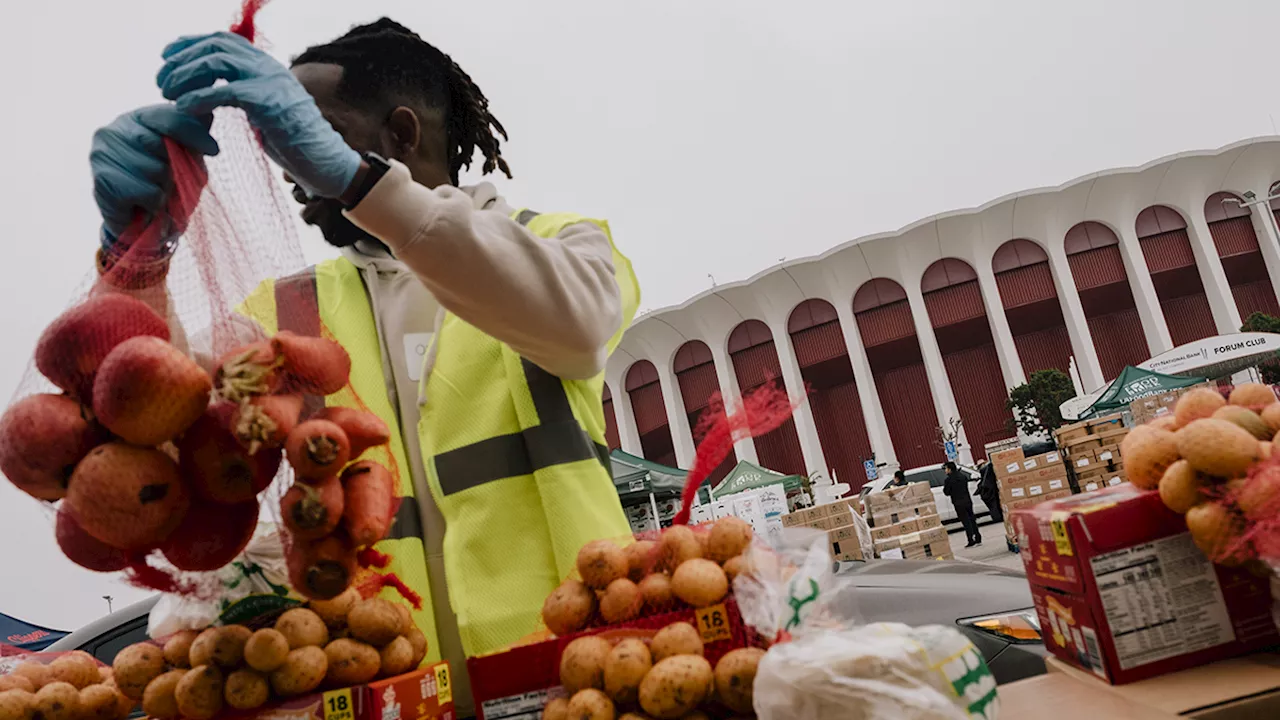Health
Millions Face SNAP Benefit Cuts: How to Help Those in Need

The Supplemental Nutrition Assistance Program (SNAP), commonly known as food stamps, has recently faced a significant disruption, affecting millions of low-income individuals and families across the United States. On November 1, 2023, recipients did not receive their monthly benefits, causing widespread concern and panic among those reliant on this critical support for groceries.
Just two days later, the administration announced that payments would begin again, but at approximately half the usual amount and with considerable delays. This partial restart is being financed through a temporary contingency pool from the United States Department of Agriculture (USDA), which experts warn will quickly deplete.
Challenges in Implementing Reduced Benefits
Each state manages SNAP independently, meaning that the use of contingency funds could necessitate entirely new systems and formulas to distribute the reduced benefits. Currently, many of the individuals who would typically handle these adjustments are unable to work due to the ongoing challenges posed by the benefit freeze.
Adding to the difficulties, the amount provided per person does not cover the rising costs of groceries. Staple items such as milk, eggs, and meat continue to increase in price, deepening the financial strain on households. In the past week, Rethink Food, an organization aiding those in need, reported a staggering 300% increase in demand for support through food pantries, distribution hubs, and community fridges.
Many of those affected by the SNAP benefit cuts include children, seniors, and multigenerational families. Contrary to common perceptions, a significant number of recipients are employed full-time, highlighting the pressing nature of food insecurity in working households.
Community Responses and Support Initiatives
As the situation unfolds, various community organizations, businesses, and churches have stepped up to offer support. In the Austin area, numerous entities are providing free meals to those impacted by the delays in SNAP benefits. For those seeking assistance, it is vital to explore local resources available for food support.
Furthermore, the City of Jacksonville has released data detailing the economic repercussions of the SNAP delays on local businesses and households, underscoring the broader implications of reduced benefits beyond individual families.
In light of the ongoing crisis, it is essential for communities to come together and provide assistance where possible. Those who can help are encouraged to engage with local initiatives aimed at supporting affected families during this challenging period.
As discussions around SNAP continue, the urgent need for effective solutions and support systems remains evident. The complexities of food assistance programs highlight the critical importance of stable funding and accessible resources for vulnerable populations.
-

 Science1 month ago
Science1 month agoNostradamus’ 2026 Predictions: Star Death and Dark Events Loom
-

 Technology2 months ago
Technology2 months agoOpenAI to Implement Age Verification for ChatGPT by December 2025
-

 Technology7 months ago
Technology7 months agoDiscover the Top 10 Calorie Counting Apps of 2025
-

 Health5 months ago
Health5 months agoBella Hadid Shares Health Update After Treatment for Lyme Disease
-

 Health5 months ago
Health5 months agoAnalysts Project Stronger Growth for Apple’s iPhone 17 Lineup
-

 Technology5 months ago
Technology5 months agoElectric Moto Influencer Surronster Arrested in Tijuana
-

 Education5 months ago
Education5 months agoHarvard Secures Court Victory Over Federal Funding Cuts
-

 Health5 months ago
Health5 months agoErin Bates Shares Recovery Update Following Sepsis Complications
-

 Technology7 months ago
Technology7 months agoMeta Initiates $60B AI Data Center Expansion, Starting in Ohio
-

 Technology6 months ago
Technology6 months agoDiscover How to Reverse Image Search Using ChatGPT Effortlessly
-

 Science4 months ago
Science4 months agoStarship V3 Set for 2026 Launch After Successful Final Test of Version 2
-

 Technology7 months ago
Technology7 months agoRecovering a Suspended TikTok Account: A Step-by-Step Guide




















